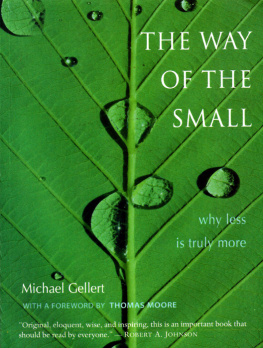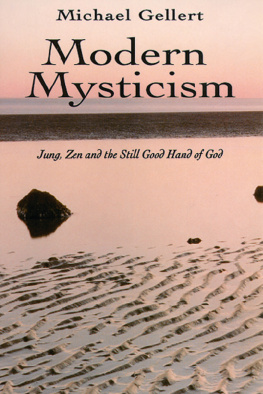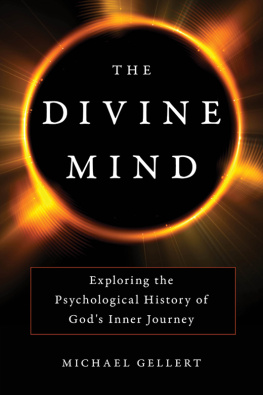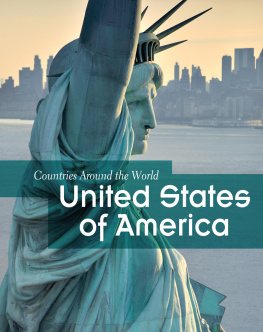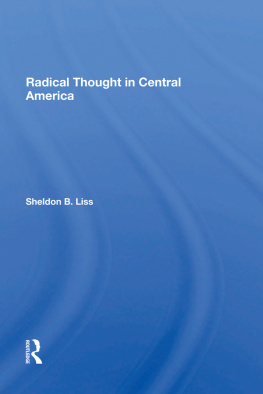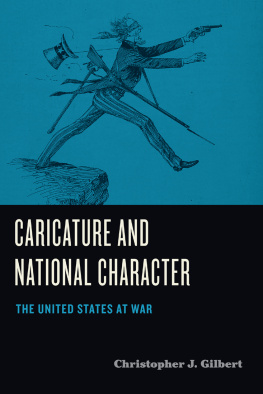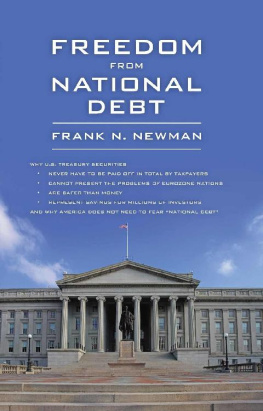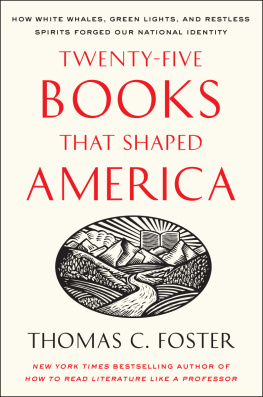THE FATE OF AMERICA
Also by Michael Gellert
Modern Mysticism: Jung, Zen and the Still Good Hand of God
THE FATE OF AMERICA
An Inquiry into National Character
Michael Gellert

Copyright 2001 by Michael Gellert
Published in the United States by Brasseys. All rights reserved. No part of this book may be reproduced in any manner whatsoever without written permission from the publisher, except in the case of brief quotations embodied in critical articles and reviews.
Library of Congress CataloginginPublication Data
Gellert, Michael
The fate of America: an inquiry into national character/Michael Gellert.1st ed.
p. cm.
Includes bibliographical references (p.) and index.
ISBN 978-1-57488-4715-5 (alk.paper)
1. National characteristics, American. 2. United StatesCivilization. 3.
HeroesMythologyUnited States. 4. IdealismSocial aspectsUnited
States. 5. Comparative civilization. I. Title.
E189.1 .G4514 2001
973dc21 2001025545
ISBN 978-1-57488-4715-5 (alk.paper)
Printed in the United States of America on acid-free paper that meets the
American National Standards Institute Z3948 Standard.
Available from:
Potomac Books, Inc.
22841 Quicksilver Drive
Dulles, Virginia 20116
8007752518
First Edition
10 9 8 7 6 5 4 3 2 1
The publishers have generously given permission to use extended quotations from the following copyrighted works. From The American Unconscious, by William H. Kennedy. Copyright 1974 by the Educational Center. Reprinted by permission of the Educational Center. From Democracy in America, by Alexis de Tocqueville. Copyright 1945 and renewed 1974 by Alfred A. Knopf, Inc. Reprinted by permission of Alfred A. Knopf, a division of Random House, Inc. From Passionate Sage: The Character and Legacy of John Adams, by Joseph J. Ellis. Copyright 1993 by Joseph J. Ellis. Reprinted by permission of W. W. Norton Co., Inc. From Slavery and Freedom, by Nikolai Berdyaev, translated from the Russian by R. M. French. Copyright 1944 by Charles Scribners Sons and renewed 1972 by Charles Schribners Sons. Reprinted by permission of Scribner, a division of Simon & Schuster. From Voltaires Bastards by John Ralston Saul. Reprinted by permission of the Free Press, a Division of Simon & Schuster, Inc., copyright 1992; Penguin Books Canada, Ltd., copyright 1992; Curtis Brown, copyright 1992.
In memory of Koun Yamada, who taught me,
among other things, that the patient cultivation of character
is both the fruit and the critical ingredient of a spiritual life.
... I flatter myself that a Superintending Providence is
ordering everything for the best and that, in due time, all
will end well.
George Washington
In order to arrive at that which thou knowest not
Thou must go by a way that thou knowest not.
In order to arrive at that which thou possessest not
Thou must go by a way that thou possessest not.
In order to arrive at that which thou art not
Thou must go through that which thou art not.
St. John of the Cross
Contents
Introduction
Character is fate.
Heraclitus
Of all the books that cannot be written, the historian Jacques Barzun has said, those about nations and national character are the most impossible. If this is true, then the topic of this book is perhaps the most impossible, for it is about America and the American national character.
The difficulty of this subject begins with the issue of national character itself, an issue upon which nobody can agree. That every nation or ethnic group has a distinct temperament, with unique qualities, talents, and predispositions, is a fact that has by and large been accepted. But aside from this fact, what do we know about the nature of national character? Is it genetic, or is it acquired? Is it a fixed thing, or does it change over time? Does it exist in the psyche, or is it a purely social phenomenon? What is it rooted inclimate, geography, historical events? These are only questions of definition. Questions of how to evaluate national character are even more vexing. How does one measure the nmettle of a nations character? Does one use moral backbone as the yardstick, as David Hume suggested in the eighteenth century? Or does one use the quality of genius possessed by a people, as Voltaire suggested? Or, finally, as Hegel would contend, does one look above all to the spirit of the people, to their collective consciousness and emotional, intellectual, and aesthetic sensibilities? As one can see, the notion of national character is one of the vaguest and most mysterious in the history of ideas.
The fact then that this book is about Americas national character immensely magnifies the complexity of its inquiry. As the Swiss psychologist Carl Jung wrote, America, in spite of the Europeans impression of it as childlike, impetuous, and naive, has probably the most complicated psychology of all nations. As a pluralistic society composed of so many ethnic groups, America is a world within itself. Furthermore, its history, though short by comparison with most nations, has had a number of distinct phases with marked shifts from one another. And the factors shaping this history have been complicated, including the Puritan origins of the nation, the political philosophy of the Founding Fathers, the institution of slavery, and the transformative events of the Civil War, the New Deal, the civil rights movement, the Vietnam War, and Americas emergence as the leading nation and stalwart defender of democracy in the world. There is, ostensibly, no such thing as the American experience, but only many American experiences. American identity is so heterogeneous, in flux, and perplexing that it may altogether defy characterization.
Nevertheless, the difficult problems facing the nation as it begins the twentyfirst century necessitate an examination of its complex character precisely because the latter has a great deal to do with them. Indeed, these problems are largely selfimposed. Despite the recent increase in prosperity, America is plagued by crime, drug abuse, racial tensions, poverty, the erosion of vital institutions such as the family and education, a diminished sense of vision and direction, and the deterioration of community life if not the quality of life in general. Incidents such as the 1992 Los Angeles riots, the Oklahoma City bombing in 1995, and the Columbine High School shootings in 1999 reveal the explosive potential of discontent in the nation. Thus, this book is not only a study of national character, but an attempt to understand how national character relates to the nations problems; it is an attempt to confront these problems by going to one of their root causes.
The books central thesis is that America suffers from a crisis in heroism, in what it means to be heroic. The American heroic idealthe nations aspiration toward greatness and its sense of purposeno longer holds up the way it did in former times, and consequently there is confusion in the values, morals, and norms of society. The nations heroic ideal is too simplistic and young for modern times. Furthermore, the basic national character out of which this heroic ideal emerged is also gripped by the spirit or principle of youth. This principle is appropriate for a young country, but it can thwart maturation by persisting in its hold long after this has become historically and psychologically inappropriate. America has


